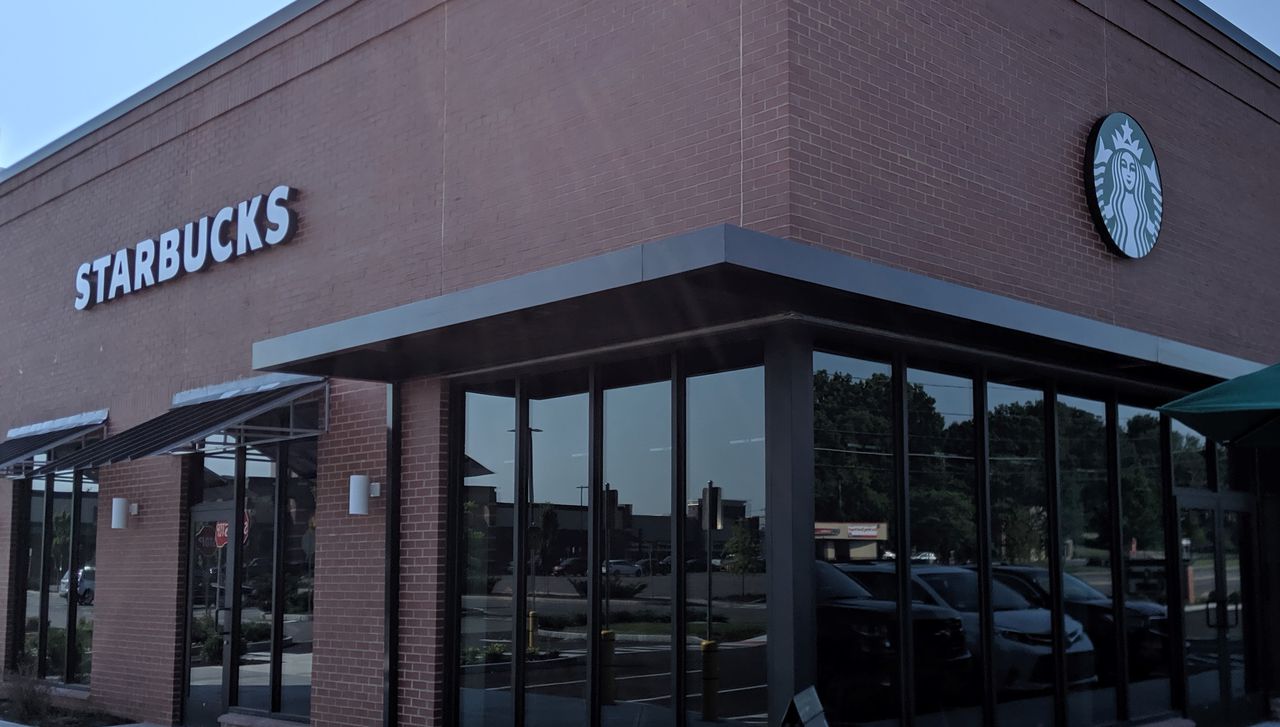Former Starbucks manager says she was fired for being white, awarded $25.6 million in lawsuit
Starbucks has been ordered to pay tens of millions of dollars to a former regional manager who sued the company for wrongful termination and said she was fired because she is white.
The former employee, Shannon Phillips, said in a 2019 complaint she became a scapegoat in the company’s damage control efforts after a viral video showed two Black men being arrested at one of its Philadelphia shops, sparking outrage across the country and leading the corporate behemoth to temporarily close down its operations to conduct an anti-bias training.
After a six-day trial, a unanimous federal jury in New Jersey on Monday awarded Phillips $25.6 million, including $25 million for punitive damages and $600,000 in compensatory damages, according to Console Mattiacci Law, which represents Phillips.
In a statement issued following the verdict, the law firm said Phillips proved “by clear and convincing evidence” that punitive damages were warranted under New Jersey’s anti-discrimination law, and that Phillips is also seeking damages for back pay as well as future pay, which will be decided by the judge. Laura Mattiaci, the lead attorney for Phillips, declined to comment Wednesday, saying the case is “still open.”
Starbucks has denied firing Phillips because of her race and declined to comment Wednesday.
The incident at the center of the case happened in April 2018, when Rashon Nelson and Donte Robinson, who are Black, went to a Starbucks in the Rittenhouse Square area of Philadelphia for what they said was a business meeting. Nelson said he asked to use a bathroom and was told it was for paying customers only. An employee came over to the men’s table and asked if they wanted to order drinks. Robinson said he told the employee they were OK and waiting for a meeting.
But a manager then called the police to report “two gentlemen at my cafe refusing to make a purchase or leave,” according to a recording of the 911 call obtained by “Good Morning America,” which interviewed Nelson and Robinson about the arrest.
Nelson and Robinson said they never heard the manager inform them they had to leave.
An eight-minute video of the arrest shows three police officers in bicycle helmets standing around Nelson and Robinson’s table, asking questions before eventually arresting the two men and leading them out of the store in handcuffs.
The video sparked national outrage, leading to protests inside and outside of the Rittenhouse store, and became a public relations crisis for Starbucks. Its CEO issued a public apology, and the company shuttered its stores for a day to hold anti-bias training for its 175,000 U.S. employees.
After the arrest, Phillips, who as the regional manager oversaw nearly 100 locations across Philadelphia, south New Jersey, Delaware and parts of Maryland, said in a 2019 complaint that she took steps to allay the community’s concerns and to keep staff and customers safe. She said those efforts included arranging a round table for CEO Howard Schultz in Philadelphia and organizing teams of management-level employees to work at the approximately 20 Philadelphia locations because hourly workers feared going to work amid all the protests.
A few weeks after the arrest and after the company reached a settlement with Nelson and Robinson in which it pledged to continue taking actions to address the incident, Phillips said she was ordered to suspend a white manager who oversaw some Philadelphia stores and was accused of discriminatory conduct. The manager did not oversee the Rittenhouse store. Phillips fought the allegations, which she said were “factually untrue.”
No action was taken against the manager of the Rittenhouse location, who is Black and who had promoted the store manager who made the call to the police, according to Phillips’ complaint.
Phillips said she was soon terminated for pushing back against the white manager’s suspension. The only reason she was given was that “the situation is not recoverable,” according to her complaint.
In her complaint, Phillips said her race “was a motivating and/or determinative factor” in her termination.
Starbucks denied firing Phillips because of her race. According to Console Mattiacci’s statement, the company claimed Phillips showed lack of leadership during the crisis.
Nelson and Robinson did not face charges in the arrest. The men reached an undisclosed settlement with the company and an offer to complete their college degrees through Starbucks’ covered college tuition program for employees.
___
©2023 Los Angeles Times. Visit at latimes.com. Distributed by Tribune Content Agency, LLC.
